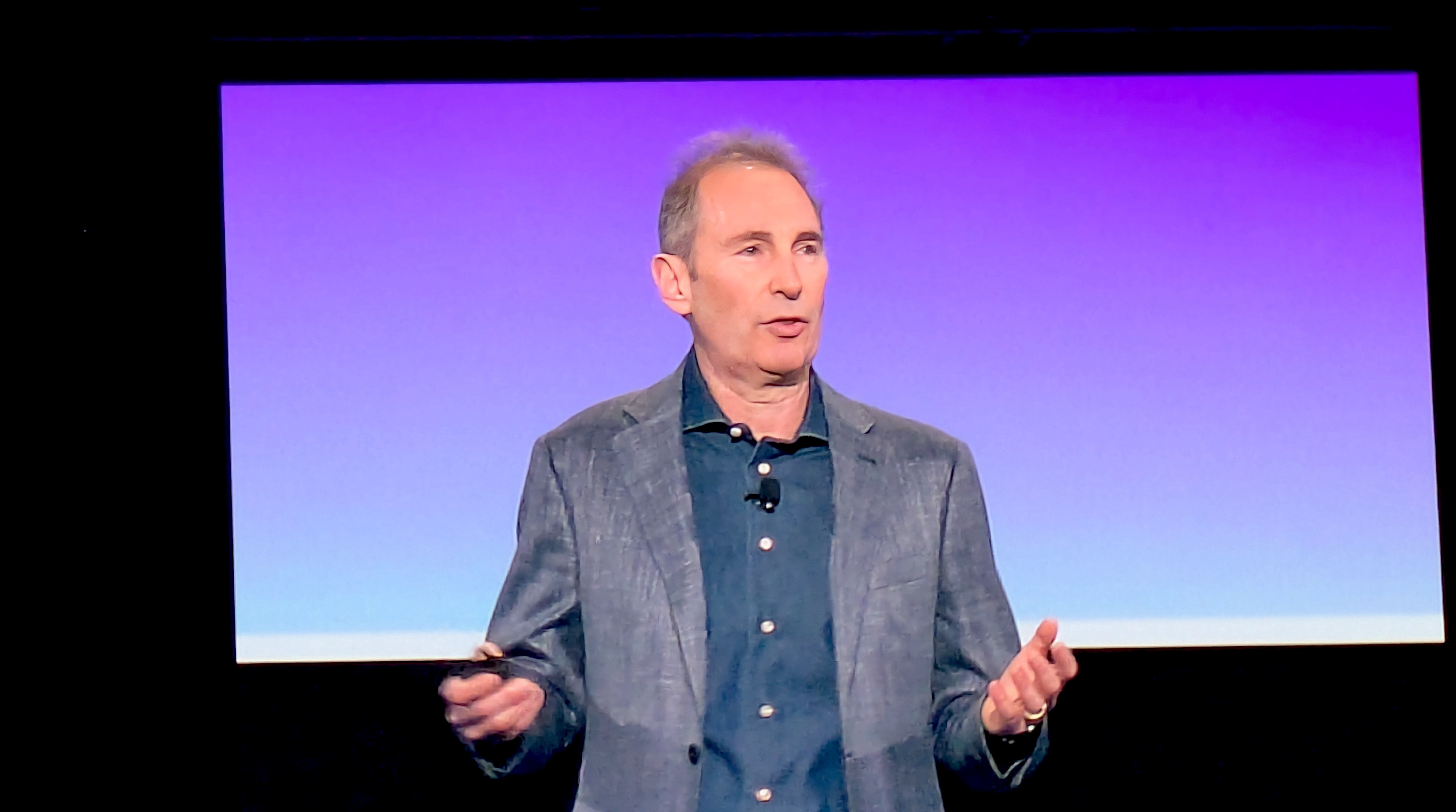 AI
AI
 AI
AI
 AI
AI
Amazon.com Inc. Chief Executive Andy Jassy has admitted that his company’s workforce is likely going to become much smaller in the future as more tasks are performed by generative artificial intelligence tools and AI agents.
In a memo to employees today, Jassy (pictured) said the company expects it will need “fewer people doing some of the jobs that are being done today, and more people doing other types of jobs”. He added that it’s difficult to forecast where this will net out over time, though he said he’s almost certain that AI will ultimately “reduce our total corporate workforce.”
The CEO told employees that they need to figure out how they can use AI tools to “get more done with scrappier teams.”
Amazon has already laid off more than 27,000 staff since 2022, including several cuts this year. For instance, it let go of about 200 employees at its North American stores unit in January, and an additional 100 were laid off from its devices and services business in May.
As of March, Amazon had 1.56 million full-time and part-time employees on its books globally, according to its financial filings. In addition, it also employs thousands of temporary workers in its warehouses, plus numerous contractors in other areas of its business.
But this will likely change in the future, for the company has been working hard to bring in generative AI tools across its business operations. For instance, it’s using AI across its fulfillment network to help out in things such as inventory placement and demand forecasting, Jassy said in the memo. It’s also trying to use AI to improve the efficiency of its warehouse robots by making them more intelligent.
Jassy isn’t the first technology CEO to admit that AI is likely going to shrink his company’s workforce. Shopify Inc. CEO Tobi Lutke said in April that using AI is now a “fundamental expectation” for his employees, and added that managers and team leaders will have to demonstrate why they “cannot get done what they want using AI” before they ask to increase their headcount.
Klarna Group plc CEO Sebastian Siemiatkowski said last month that his company has recently shrunk its workforce by around 40%, partly because of its investments in AI and also because of natural attrition. From that, it’s likely that most of its workers who are leaving of their own accord aren’t being replaced by humans.
In his memo, Jassy outlined a vision of a future in which AI agents become more prevalent, automating many of the tedious tasks currently being performed by humans. He said these agents would free up human staff to take on more creative roles, though since Jassy is saying Amazon will have fewer employees as a result of AI, it appears that some will have to find those roles somewhere else.
“Agents will allow us to start almost everything from a more advanced starting point,” he said. “We’ll be able to focus less on rote work and more on thinking strategically about how to improve customer experiences and invent new ones.”
But many of Amazon’s employees aren’t so convinced. Last month, in an article in the New York Times, some software engineers at the company revealed that AI has created a more “intensified work environment” in which they’re expected to use the technology to boost productivity and achieve higher output goals. As a result, coding work is “becoming more routine, less thoughtful and, crucially, much faster-paced” than before.
Nevertheless, Amazon remains undeterred, and it has made some enormous investments in AI in recent years, including building out the vast data centers required to provide the computational resources for fleets of AI agents.
In April , Jassy wrote in his annual letter to shareholders that he believes generative AI represents a “once-in-a-lifetime reinvention of everything we know.” He stressed that the technology is already “saving companies lots of money,” and will dramatically alter the way things are done in areas such as coding, financial services, search, shopping and elsewhere.
“It’s moving faster than almost anything technology has ever seen,” the CEO said.
Support our mission to keep content open and free by engaging with theCUBE community. Join theCUBE’s Alumni Trust Network, where technology leaders connect, share intelligence and create opportunities.
Founded by tech visionaries John Furrier and Dave Vellante, SiliconANGLE Media has built a dynamic ecosystem of industry-leading digital media brands that reach 15+ million elite tech professionals. Our new proprietary theCUBE AI Video Cloud is breaking ground in audience interaction, leveraging theCUBEai.com neural network to help technology companies make data-driven decisions and stay at the forefront of industry conversations.